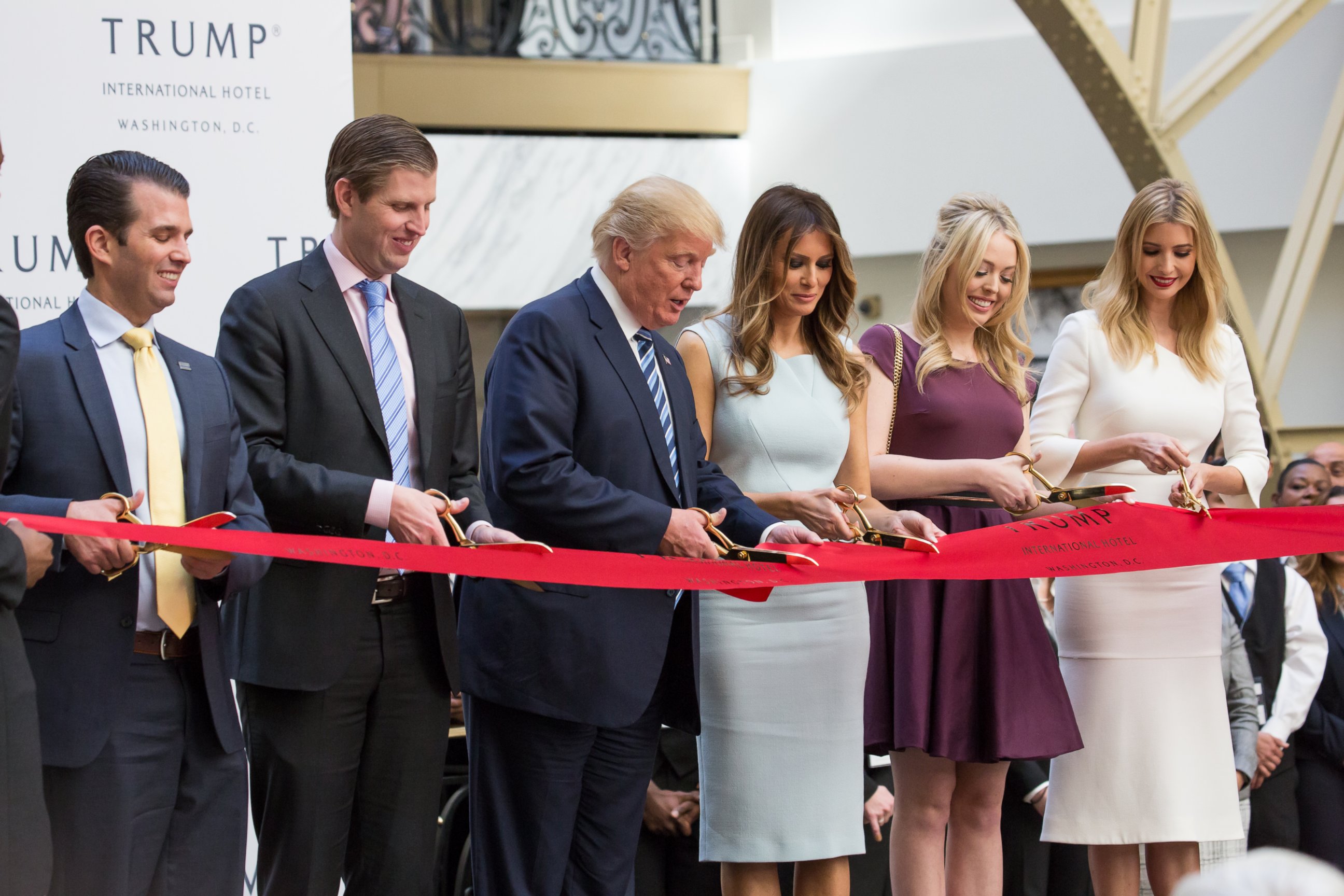Judge allows emoluments case against Trump to move forward
Maryland and Washington, DC, filed the suit against Trump last year.
A lawsuit accusing President Donald Trump of violating a constitutional clause that prohibits elected officials from doing business with foreign governments can move forward, a federal judge wrote Wednesday.
Attorneys general from Maryland and Washington, DC, say President Trump violated the foreign emoluments clause of the Constitution by profiting from his Trump International Hotel in Washington, DC, which foreign governments frequently patronize while in the nation’s capital.
Judge Peter Messitte in Maryland on Wednesday struck down President Trump’s latest attempt to dismiss the case, writing in an opinion to the court that Maryland and D.C. “have convincingly argued that the term ‘emolument’… means any ‘profit,’ ‘gain,’ or ‘advantage’ and that accordingly, they have stated claims to the effect that the President, in certain instances, has violated both the Foreign and Domestic Clauses.”
The Constitution prohibits any federal office holder, including the president, from accepting any payment or benefit from a state or foreign government.
Following his election, Trump pledged to divest from his family businesses, ceding the Trump empire to his three adult children via a “blind trust” and promising to donate any foreign earnings to the US Treasury. In February, the Trump Organization announced it had made its first such donation to the tune of $151,470.

Neither the Trump Organization nor the White House immediately responded to ABC News' request for comment.
Maryland and the District of Columbia brought the lawsuit last year, alleging that local businesses have suffered as a result of the president’s decision to permit his family business to do business with foreign customers.
Defining the intent of the foreign emoluments clause in the Constitution was at the heart of the president’s motion to dismiss the case.
At a hearing in June, government attorneys representing Trump argued for a narrow definition of the term “emolument,” hoping to have the case dismissed on the basis that foreign payments to a hotel did not amount to a violation of the emoluments clause.
“Unilateral action to try to curry favor wouldn’t be enough,” a government attorney said of the business involving the Trump property, “because there is not a reciprocal exchange.”
Judge Messitte expressed skepticism over the government’s claim at the June hearing, but hedged on making a decision from the bench, noting that there is “no spot-on precedent” for this case.
Both sides have three weeks to file a joint motion suggesting next steps in the case.
Trish Turner contributed reporting




